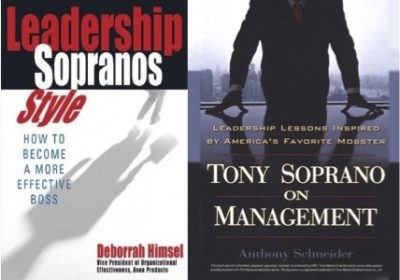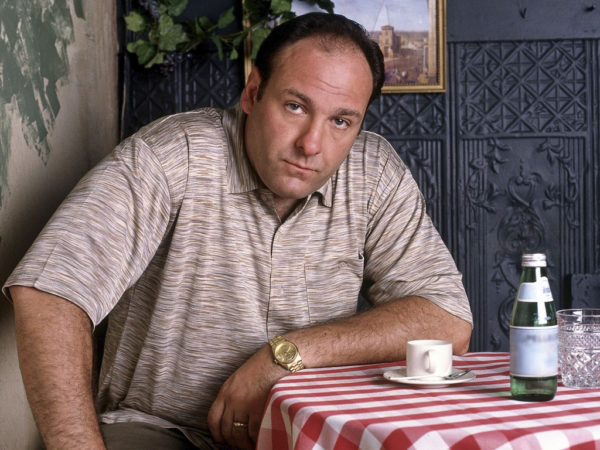Eight Leadership Lessons From Tony Soprano
“Those who want respect, give respect.”
One of many great quotes from Tony Soprano, played by the late, great James Gandolfini.
The premature death of James Gandolfini, the actor who played Tony Soprano on the cult television show The Sopranos, has thrown the show’s millions of fans into mourning for the man, while providing them with the opportunity to fall in love with the show and its central character all over again.
Even in these stifling times of political correctness, there was no offence taken at the Italian Mafioso stereotypes so deliciously portrayed in the program, which ran between 1999 and 2007; especially by Gandolfini himself. (In the show’s first season, Tony Soprano was way ahead of anyone of a PC disposition: “I’m in the waste management business. Everybody immediately assumes you’re mobbed up. It’s a stereotype. And it’s offensive.”)
The premature death of Gandolfini, at just 51 of a heart attack, was tragic, but it was somehow fitting that the star should have died in Rome, en route to attending a film festival in Sicily, the Mafia’s heartland.
Gandolfini’s triumphant turn as Tony Soprano has left its indelible mark on popular culture. And also, it may come as a surprise (if not all-out horror) to some, on management culture.

Here’s the countdown of Tony Soprano’s greatest leadership lessons – leadership lessons to die for, one might say – illustrated by some of his most memorable quotes.
It’s lonely at the top
“All due respect, you got no idea what it’s like to be Number One. Every decision you make affects every facet of every other thing. It’s too much to deal with almost. And, in the end, you’re completely alone with it all.”
The leader’s role is a unique role. For anyone who holds this role, or aspires to, it’s important to understand that being a leader is not just another job. It is a distinctive and many-faceted role, and everything flows from that. It’s why leadership is not for everyone. (As one of my old bosses told me when I was promoted –“you ain’t one of the guys anymore. Give that up.”)
Learn from your mistakes
“There’s an old Italian saying: you up once, you lose two teeth. A wrong decision is better than indecision.”
Making mistakes is an inevitable part of making decisions; it is certainly not an excuse for not making decisions. A mistake may indeed come with unwanted consequences, but successful leaders know that a mistake made is a mistake made once only. Losing two teeth is bad enough; the consequences of making the same mistake again could be a lot worse. But whatever the pain, and whatever the risks, decisions have to be made. If decisions are not your thing, neither is leadership.
The vision thing.
“Think! The big picture!”
Leaders are constantly making decisions, solving problems, assessing risk and responding to opportunities – but the minutiae of the everyday must be in the context of short-, medium- and long-term objectives, otherwise it’s just chaotic ad-hocery. A sustainable business requires a leader who knows where it’s going.
You have authority – use it
“What use is an unloaded gun?”
There’s no point being a leader and not using the authority that comes with that. Some decisions are unpleasant, but they are also necessary, and they can only be made by the leader. Whether it’s rebuking or sacking an incompetent manager, or closing down a division that is not performing, leaders who avoid unpleasant decisions will render themselves incapable of doing their job.
Having authority also means knowing when not to use it
“You can’t fight every battle, right?”
Being incapable of exercising authority is not a good thing when you’re a leader; but knowing when not to pull the trigger is. Some battles just can’t be won. Attempting to find a solution to every problem is a sure way for chief executives to spend most of their day banging their heads against a wall or running around in circles – pick your cliché. And even some battles that can be won may not have to be won by you; be prepared to delegate. (As I have often heard “Is this the hill to die on?”)
Work-life balance: know your place
“I got problems at work. I got problems at home.”
A leader’s day at the office can be long and fraught; those days should be left at the office, or they will poison valuable – and precious – family and recreational time. Knowing how to switch on and off is one of a leader’s most important skills.
Have a plan
“Let’s do it right. Act normal. Plan things out. Make no mistakes.”
Running an organization, big or small, is complex, because the organization is a complex, almost living organism. Some decisions can be made intuitively, and need to be so (Trust your gut. I’ve had clients tell they retained me mostly for what my gut would tell them, not just my expertise)
It’s important for leaders to be able to think quickly on their feet. But only so much of leadership can come down to gut feel and a sixth sense. There is no sustainability without a plan.
Dealing with people
“Those who want respect, give respect.”
Some leaders lose the skill of dealing with people as individuals; they lose or gloss over their empathy for others; they no longer consider it important to be able to hold conversations and to listen; even though these are the attributes that often get them to their positions of leadership. Successful leaders understand the importance of the “r” word: respect.






